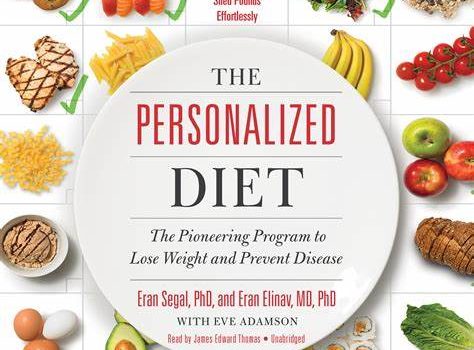
In a world where personalized diets and nutrition plans abound, making informed choices about your dietary path is essential for overall health and well-being. Personalized diets can offer tailored approaches to nutrition, but it’s crucial to navigate this landscape with discernment. In this guide, we will provide guidance on how individuals can make informed decisions about their dietary choices, considering the available evidence, alternatives, and their unique needs and preferences.
1. Evaluate the Evidence
When considering a personalized diet or nutrition plan, the first step is to assess the evidence. Here’s how to evaluate the evidence effectively:
- Scientific Support: Investigate whether the diet is backed by robust scientific research. Look for studies published in reputable journals and conducted by qualified researchers.
- Critical Appraisal: Examine the quality of the research. Consider factors like sample size, methodology, and the duration of studies. High-quality research is more reliable.
- Consistency: Determine if multiple studies and sources support the diet’s claims. Consistency in findings increases the reliability of the approach.
- Expert Opinions: Seek the opinions of registered dietitians, nutritionists, and healthcare professionals. Their expertise can help you understand the diet’s potential benefits and risks.

https://th.bing.com/th/id/OIP.nnZWip-AUreTA9X4Npz8OwHaHa?pid=ImgDet&rs=1
2. Consider Your Unique Needs
Personalized diets should account for your individual needs, preferences, and health goals. Here’s how to tailor your choices:
- Health Conditions: If you have specific health conditions, such as diabetes or allergies, your dietary choices should align with managing or alleviating these conditions.
- Lifestyle: Consider your lifestyle, including your work schedule, physical activity, and cultural food practices. Your diet should be realistic and adaptable to your daily routine.
- Food Preferences: Ensure your dietary choices align with your food preferences and ethical values, whether you are vegetarian, vegan, or have other dietary restrictions.
- Nutritional Balance: Focus on a diet that offers a well-rounded nutritional balance, incorporating all essential nutrients.
3. Explore Alternative Approaches
Don’t limit yourself to a single dietary plan. Exploring alternative approaches can provide valuable insights:
- Holistic Nutrition: Consider holistic nutrition, which takes a broader view of well-being and integrates physical, emotional, and mental aspects.
- Mindful Eating: Explore mindful eating, which emphasizes being present during meals, listening to your body’s hunger cues, and cultivating a healthy relationship with food.

https://foodrevolution.org/wp-content/uploads/iStock-495874113.jpg - Genetic-Based Nutrition: Investigate genetic-based nutrition, which tailors dietary recommendations to your unique genetic makeup. This approach is still evolving but holds promise for highly personalized diets.
- Consult Registered Dietitians: Seek guidance from registered dietitians who can provide expert advice and help you explore a range of dietary approaches.
4. Test and Adapt
Personalized diets are not one-size-fits-all solutions. It’s essential to test and adapt your dietary choices based on your experiences:
- Trial Period: Consider trying a personalized diet for a defined trial period. Pay attention to how your body responds and whether you experience any benefits or drawbacks.
- Regular Assessments: Periodically assess your dietary choices to ensure they continue to align with your health goals and preferences.
- Consultation: Stay in touch with healthcare professionals or registered dietitians, who can offer ongoing guidance and adjustments to your dietary plan.
5. Listen to Your Body
Ultimately, your body holds valuable clues about what dietary choices are best for you. Pay attention to your body’s signals:
- Hunger and Fullness: Listen to your body’s cues for hunger and fullness. Eat when you’re hungry and stop when you’re satisfied.
- Digestive Health: Monitor how your digestive system responds to different foods. Identify any discomfort or intolerance and adjust your diet accordingly.
- Energy Levels: Take note of your energy levels and mood after meals. A well-suited diet should leave you feeling energized and balanced.
- Cravings and Satisfaction: Observe your cravings and satisfaction with your meals. A satisfying diet is more likely to be sustainable.
Conclusion
In the quest for personalized diets and nutrition plans, making informed choices is essential. By evaluating the evidence, considering your unique needs and preferences, exploring alternative approaches, and listening to your body, you can find your nutritional path. Remember that dietary choices should support your overall health and well-being, and they should be adaptable and realistic for your lifestyle. Consulting with healthcare professionals or registered dietitians can provide invaluable guidance in this journey toward finding a dietary plan that is both personalized and well-suited to your needs and objectives.










